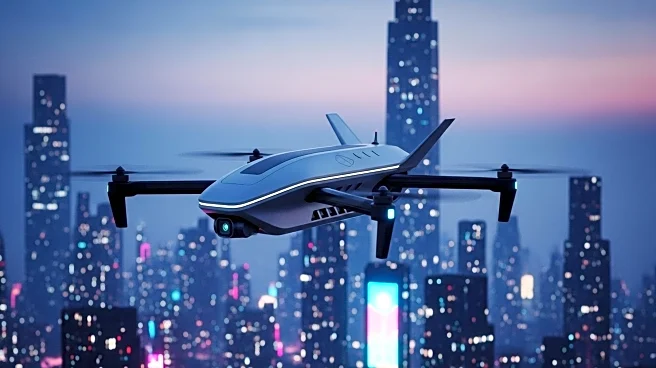What's Happening?
China's military parade showcased advanced weaponry but omitted the growing influence of AI startups collaborating with the military. A report from the Center for Security and Emerging Technology highlights China's increasing reliance on small, dual-use AI companies for military applications. These startups, emerging from universities and private labs, develop technologies like drone control systems and navigation software with both civilian and military uses. The report notes that these companies are not subject to U.S. sanctions, complicating efforts to track and prevent U.S. collaboration.
Why It's Important?
The rise of AI startups in China represents a strategic shift in military technology development, potentially enhancing China's military capabilities. These companies offer innovative solutions that can be applied to both civilian and military contexts, making it difficult for the U.S. to monitor and regulate their activities. The dual-use nature of the technology poses challenges for international security, as it blurs the line between civilian and military applications. This development may impact global military balance and necessitate new strategies for technology control and collaboration.
What's Next?
As China's AI startups continue to grow, the U.S. may need to reassess its approach to technology collaboration and export controls. Increased scrutiny of partnerships and investments in Chinese tech firms may be necessary to prevent inadvertent support of military advancements. The U.S. and its allies may also explore diplomatic and regulatory measures to address the dual-use nature of AI technologies. Stakeholders, including policymakers and industry leaders, may engage in discussions on balancing innovation with security concerns.
Beyond the Headlines
The expansion of AI startups in China raises ethical and strategic questions about the role of technology in military development. The use of civilian technologies for military purposes challenges traditional norms and may lead to increased tensions between global powers. The situation underscores the need for international cooperation and dialogue on technology governance and ethical standards. Long-term implications may include shifts in global power dynamics and the need for new frameworks to address the intersection of technology and security.










